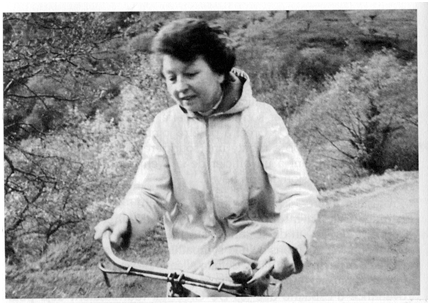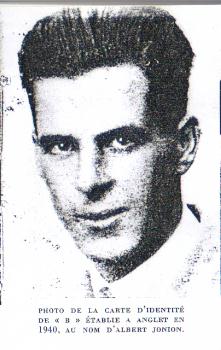Originally Posted by
Chugalug2
If we can have a generic memorial to women of WWII in Whitehall, then we should have a specific one there to those men and women who thwarted the enemy in occupied territories by aiding the escape and evasion of our Armed Forces. The constant fear of your door being battered down at 3am requires a very cold courage indeed to overcome.
That's the point I often make to local people here - many of whom are unaware of what Comète was all about, and the fact that its operations in south west France were run from a house about 1km from the Kommandantur at Anglet comes as a complete surprise to many.
The aircrew had been trained to carry out their primary flying task and they were only at risk in flight. If they were shot down and captured, they were protected (in theory) by the provisions of the Geneva Convention.
In contrast, none of the Comète volunteers had been trained - and facing them were the various arms of the German security services (Gestapo, the Sicherheitsdienst, the Feldgendarmerie, the Luftschutzpolizei, Abwehr etc etc). The Occupier had made it perfectly clear that aiding airmen/parachutists would incur severe consequences. Comète helpers had
always to be on the alert for anything out of the ordinary - such as a strange face in the street perhaps. They were at risk 24/7 until they were captured - and that occurred, as Andrée De Jongh always briefed prospective helpers, on average after no more than 6 months of operating. Once captured, they had to endure harsh interrogations before either being shot or deported to the camp system in Germany, usually under '
Nacht und Nebel' conditions.

'Tante Go'
'Tante Go' was tailor-made for her role as Comète organiser in the SW. She quickly realised that she needed a cover story to divert attention from her constant comings and goings and so she became a black marketeer (a forbidden activity). She actually supplied senior German officers with delicacies such as
foie gras etc. A useful spin-off from this activity meant that, despite food rationing, she was always able to feed the evaders, who generally arrived - hungry - in groups of four.

Living with the De Greef family was an Englishman - Albert Johnson (aka 'B'). He had been the chauffeur and travel secretary to the President of the International Olympic Committee in Brussels since 1928. During the mad days that followed 10th May 1940, he had been adopted by the De Greefs as they fled south west. He was quickly fixed up with some false papers in the name of Albert Jonion.
Employed ostensibly as a handyman/gardener to the De Greefs, he too became a Comète helper and in due course went on to lead 13 groups of evaders over the mountains. One day, 'Tante Go' and 'B' set off by train to visit
Saint-Jean-Pied-de-Port to meet someone in connection with Comète. However, during a routine inspection of papers during the journey, 'B' was arrested. (His looks and his accent betrayed him) On arrival at Saint-Jean-Pied-de-Port, he was taken to the
Citadelle, a fort used by the Germans as a prison. This was a highly dangerous situation as he was intimately familiar with Comète operations - so, bold as brass, 'Tante Go' called at the prison demanding to see the senior officer in charge. She admitted that she and 'B' were there to collect black market supplies and she invited the police chief to telephone her food supplier and also her most senior German customer in Anglet to corroborate her story. Embarrassment all round followed - and 'B' was released.
A positive outcome of this story was 'Tante Go' now had top cover for her black market business! She was a cool customer. After the war, she was invited to London where she was presented with the George Medal by the King.
As for 'B', following this incident, it was decided that it was too dangerous for him to stay in France so he left for Spain and worked for MI-9. Post-war, 'B' married and lived initially in Devon but he felt stifled there so in 1952 they emigrated to Australia, finally settling in Tasmania and living in Opossom Bay some 40 km south of Hobart.
'B' died of cancer in St John's Hospital, Hobart on the 3rd of February, 1954 aged just 45.